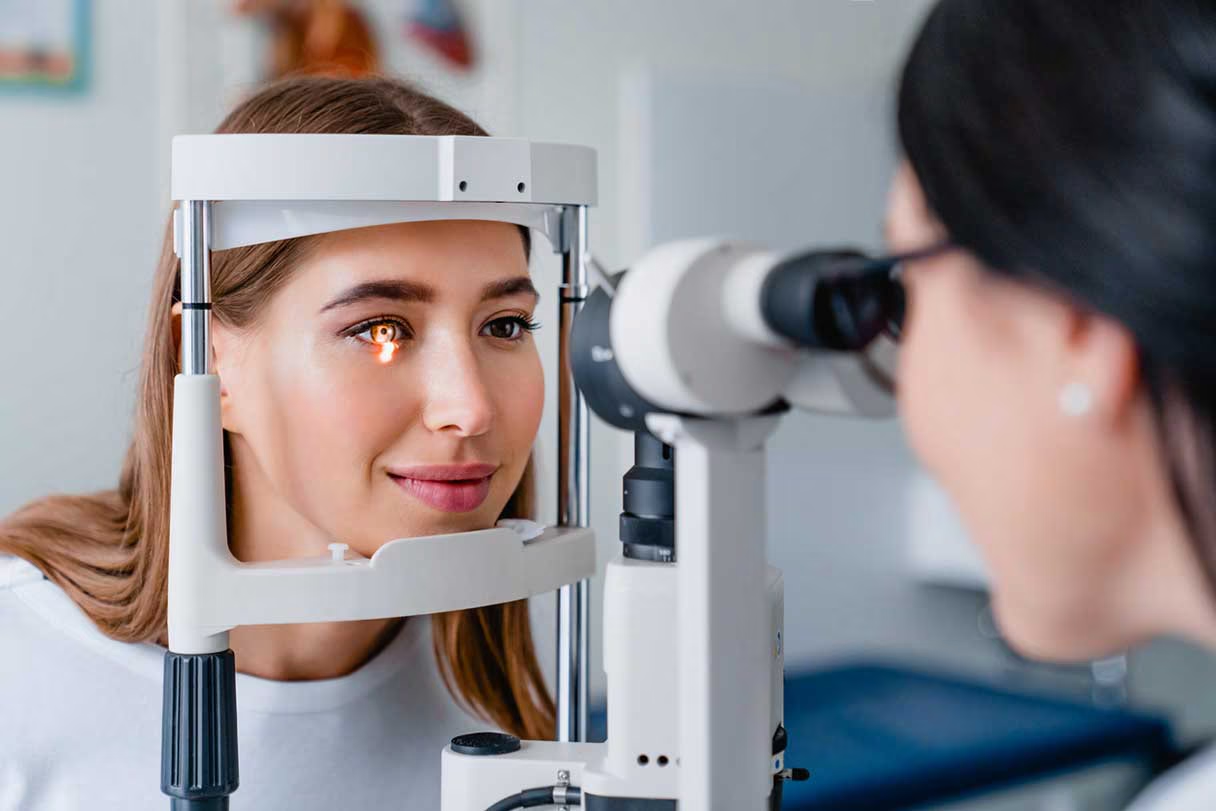Glaucoma and macular degeneration often don’t show symptoms until it’s too late, making regular comprehensive eye exams essential. Furthermore, comprehensive eye exams can detect warning signs for systemic diseases like diabetes or high blood pressure that might otherwise go undetected.
Children are increasingly developing myopia at earlier ages than ever before, making regular eye exams for children even more critical in order to prevent potential vision issues in later life.
Detecting Refractive Eye Errors
Many eye diseases don’t manifest obvious symptoms, meaning that they can progress into more serious stages before being identified and detected. This could result in permanent vision loss if not caught early; thus making routine eye exams crucial. Our doctors can detect refractive error such as nearsightedness (myopia), farsightedness (hyperopia) or astigmatism by watching how light bends as it passes through cornea and lens of eyes.
Refractive errors are one of the primary reasons people require glasses or contact lenses, and can affect people of all ages. Refractive errors occur when images do not focus properly onto the back of the eye, leading to blurry vision or other related symptoms.
An eye exam can also detect systemic conditions like diabetes or high blood pressure that have an impactful impact on eye and vision health, such as diabetes or high blood pressure, increasing the risk of severe long-term visual issues like glaucoma and cataracts.
Detecting Eye Diseases
Many eye diseases such as glaucoma – the leading cause of blindness – often go undetected until they reach an advanced state. Early diagnosis allows for timely interventions that could save both vision and life.
Eye doctors can effectively detect common eye diseases with ease by performing comprehensive exams that include digital retinal imaging, pupil dilation, visual field testing, and tonometry tests. Furthermore, they may identify systemic diseases like diabetes manifested as diabetic retinopathy in the eyes or high blood pressure manifested as narrowed vessels at the back of the eye or swelling optic nerves.
Eyes can serve as windows to your overall health and are considered early warning indicators of systemic conditions like cardiovascular disease, cancer, and dementia. That is why regular visits to an eye doctor should be made, not only to update prescriptions but also provide a full picture of overall wellbeing.
Detecting Systemic Diseases
Eyes provide a window into our bodies’ circulatory systems and often reveal clues not easily detectable by other routine health screening tests. For instance, systemic diseases like diabetes and high blood pressure may manifest themselves through eye symptoms like diabetic retinopathy and hypertensive glaucoma that cannot be found otherwise.
Eye doctors can detect these ocular manifestations through routine comprehensive eye exams by dilating the pupil. By observing changes to blood vessel size and color in the retina, they can tell if someone has these systemic diseases and begin treatment to stop further vision deterioration and loss.
Eye doctors use tonometry tests to measure eye pressure inside each eye (tonometry), examine cornea, optic disc and retina structures and look out for signs of serious health conditions like glaucoma and age-related macular degeneration. Early diagnosis with regular exams can prevent further vision deterioration as well as irreparable damage being done to eyes and save lives by stopping irreversible damage occurring.
Preventing Permanent Vision Loss
Many diseases affecting the eye can cause permanent vision loss if not detected early, including glaucoma, diabetic retinopathy and macular degeneration. Your eye doctor can detect these conditions during exams by looking for early warning signs such as bleeding in the eye, blood vessels which appear bent or leakage and an increase in swelling at the optic nerve.
Your eye doctor can also help identify early indicators of health conditions like high blood pressure or diabetes, so that early treatment can protect both eye health and general wellness. By working together with your primary care physician to manage these conditions and preserve eye wellness.
Your eye doctor may use dilation (widening) drops to dilate (widen) your pupils so they can better see inside your eyes. As this could temporarily impair your vision, make arrangements to have someone drive you home from your appointment after using these drops as well as wear sunglasses to prevent damaging to eyes.





